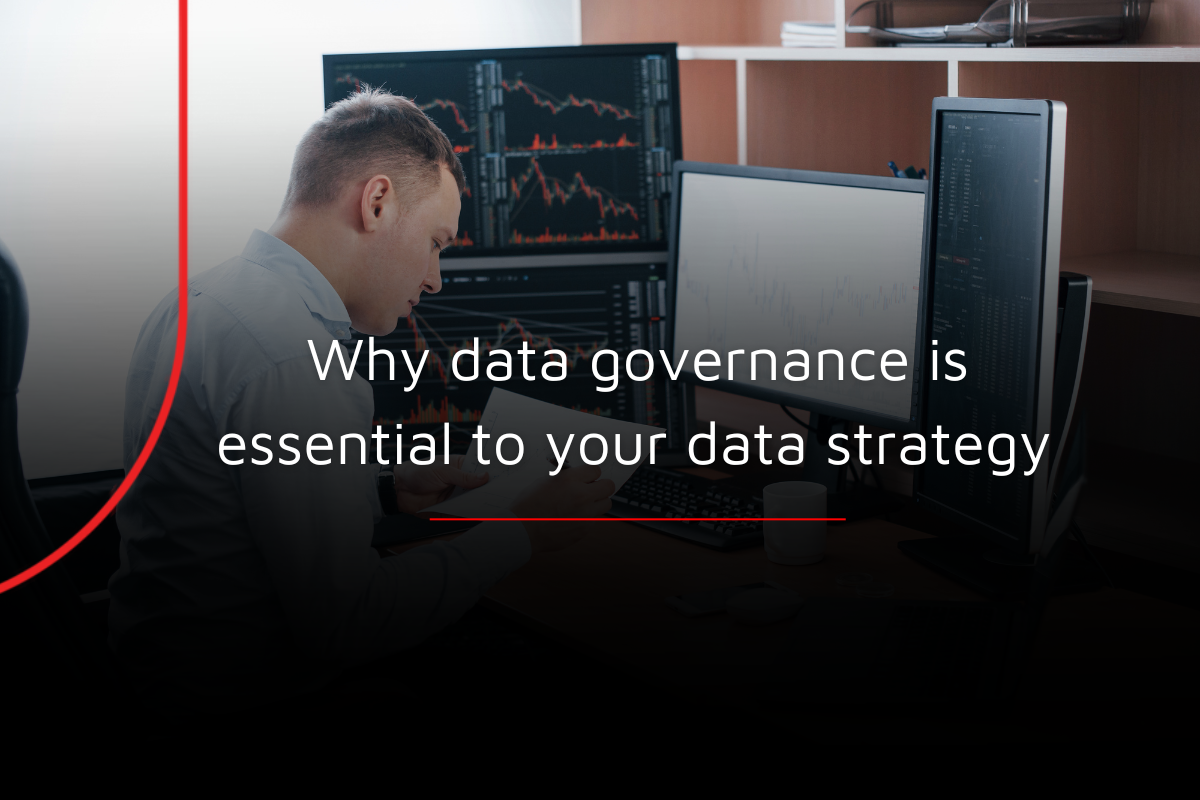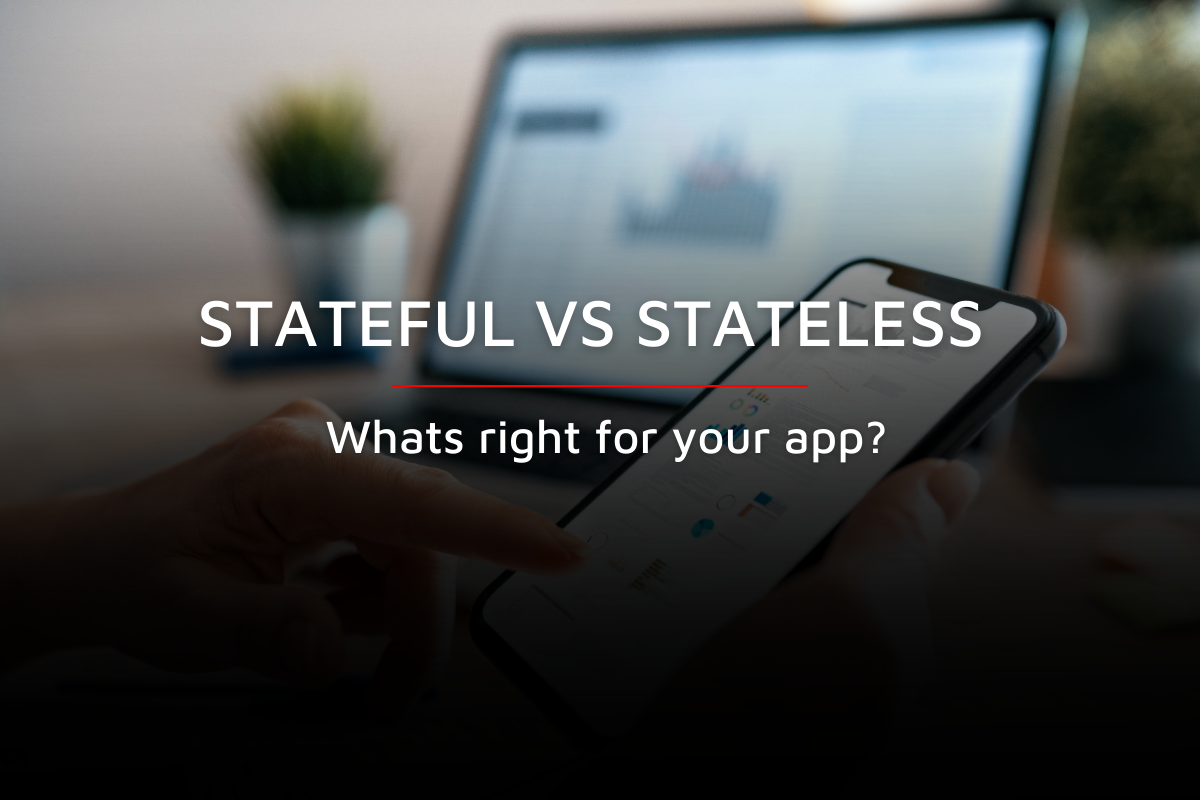Data strategy and data governance – Why they go hand in hand
23 March 2023 | Noor Khan

In order to make the best use of your data and ensure that your business is going in the right direction, data strategy and data governance are essential tools that will help you reach your goals in a way that is cost, time, and resource effective.
To truly build a data-driven organisation which are 23 times more likely to acquire new customers as highlighted by McKinsey Global Institute, businesses have to make data governance a priority in thier data strategy.
What is data strategy?
A data strategy is a long-term plan which determines how you will use your data to create value; this plan needs to:
- Define what technology is utilised
- The process in place
- What employees or third-party managed services are needed
- The rules and requirements needed to manage the data
Your data strategy may serve several purposes, such as:
- Improving processes
- Maintaining data quality
- Optimising acquisition channels
- Reducing data storage and maintenance costs
- Driving business goals
- Understanding customers
Best practices for your data strategy
- Defining common principles, metrics, and definitions
- Support and manage the strategy across the business from C-Suite to Team Leaders
- Keep track of KPIs and important metrics
- Identify key challenges
- Take corrective action to consistently improve data quality
- Work with the right people, who understand data trends
- Make use of automation where it is effective and provides value.
Mistakes to avoid in creating a data strategy
- Starting with an outdated strategy
- Not using your business goals and challenges as a starting point
- Failing to create trackable and quantifiable KPIs or utilising sufficient metrics
- Having an ineffective or non-existent approval process and chain of communication
What is data governance?
Data governance is the process of managing your data, this means the availability, usability, integrity, and security needs to be considered. You need to look at who can access what, how your internal standards are created and operated, and how the gathering, storage, processing, and disposal of data is applied across the business, as well as the operational monitoring and support processes you have in place.
Data governance best practices
- Identify roles and responsibilities and ensure they are correctly assigned
- Account for short, medium, and long-term governance actions
- Ensure effective communication and collaboration between teams
- Keep track of metrics and make sure KPIs are still appropriate
- Implement compliance requirements and internal rules for data usage
- Set clear and obtainable objectives
Mistakes to avoid with data governance
- Seeing data governance as a one-time project
- Creating a self-contained data governance team and not ensuring the process is adopted across the company
- Approaching the task with insufficient tools, knowledge, or correct applications of data
- Being inconsistent with data evaluation, gathering, or using inconsistent data sources
How to align your data strategy and governance
In order to align your data strategy and data governance processes, you need to ensure that you clearly define what it is that you wish to achieve (your business goals), and then identify what challenges are likely to occur, and then work towards a process that will help you in the short, medium, and long-term.
By creating a data strategy first, you can determine what you need to do, what you want to do, and where you want to take your data analytics. Then, you can create and apply a data governance process that supports achieving these goals and helps your company grow.
Ardent, helping you unlock the potential of your data
We understand that data governance is an essential part of building a robust data strategy. However, sometimes it can be the least of priorities. Therefore, we provide around-the-clock (24*7) operational monitoring and support services to keep your data in check, ensure it meets your security measures and more. Discover how our clients are succeeding with our excellent data engineering services:
- Making data science efficient with expert operational monitoring and support services
- Monetizing broadcasting data with trusted and timely data availability for real time, mission critical data
If you are looking to have your data handled by experts, with a proven track record of success and experience, we can help. Our highly skilled data engineering teams are proficient in world-leading technologies and can help you achieve your data goals.
Ardent Insights

Are you ready to take the lead in driving digital transformation?
Digital transformation is the process of modernizing and digitating business processes with technology that can offer a plethora of benefits including reducing long-term costs, improving productivity and streamlining processes. Despite the benefits, research by McKinsey & Company has found that around 70% of digital transformation projects fail, largely down to employee resistance. If you are [...]
Read More... from Data strategy and data governance – Why they go hand in hand

Stateful VS Stateless – What’s right for your application?
Protocols and guidelines are at the heart of data engineering and application development, and the data which is sent using network protocols is broadly divided into stateful vs stateless structures – these rules govern how the data has been formatted, how it sent, and how it is received by other devices (such as endpoints, routers, [...]
Read More... from Data strategy and data governance – Why they go hand in hand

Getting data observability done right – Is Monte Carlo the tool for you?
Data observability is all about the ability to understand, diagnose, and manage the health of your data across multiple tools and throughout the entire lifecycle of the data. Ensuring that you have the right operational monitoring and support to provide 24/7 peace of mind is critical to building and growing your company. [...]
Read More... from Data strategy and data governance – Why they go hand in hand






